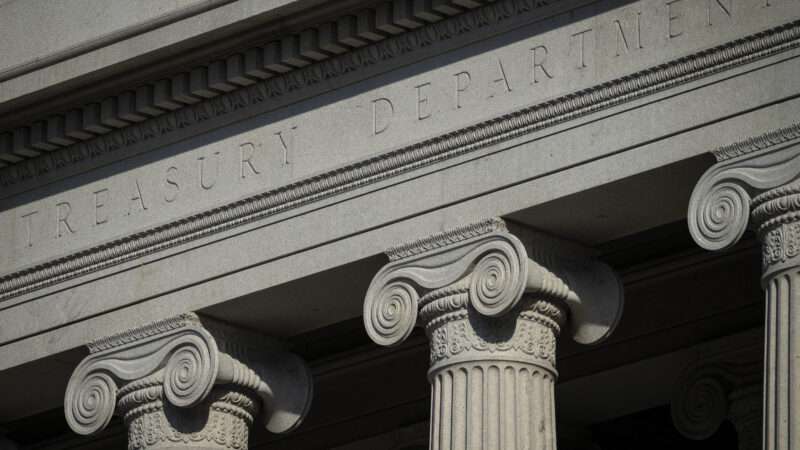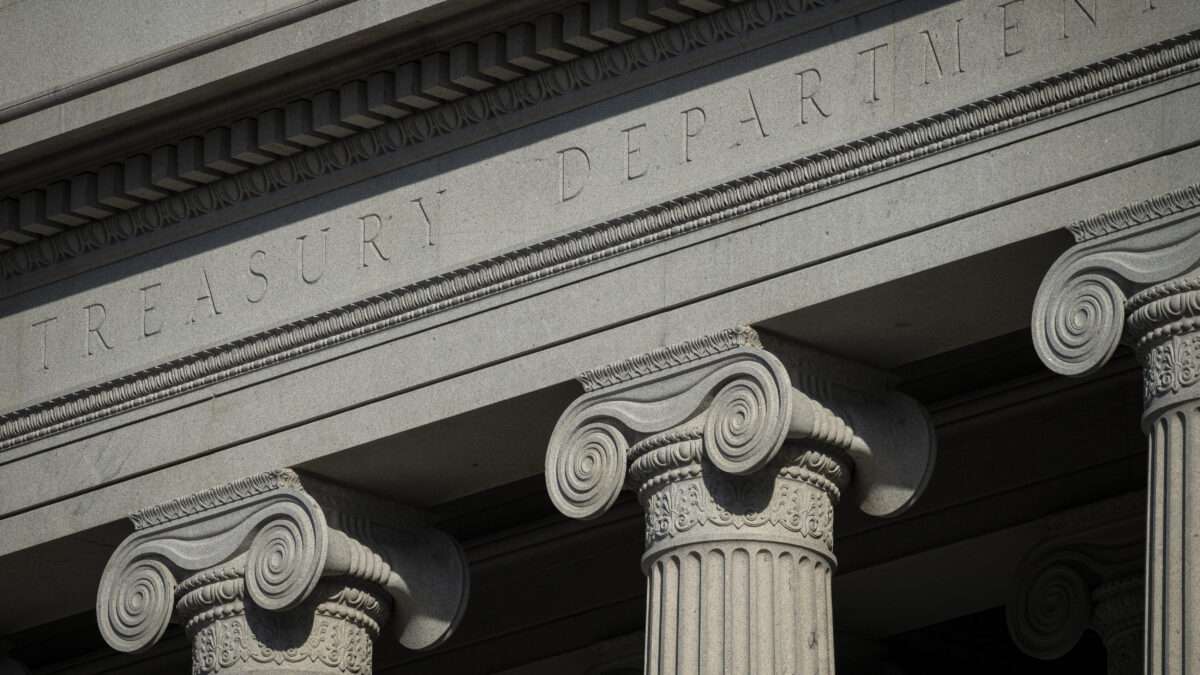'Vast Majority' of Pandemic Employee Retention Credit Claims Are Likely Scams, Says IRS

You can add the Internal Revenue Service to the ranks of federal agencies conceding that raining taxpayer money on all and sundry to offset the negative effects of pandemic-era closures didn't go as well as intended. Not only was a program meant to offset the cost of paying workers during lockdowns and voluntary social-distancing prone to being gamed, but the "vast majority" of claims submitted to the program show evidence of being fraudulent.
The Tax Man Is Shocked To Discover Fraudsters
In the course of a detailed review of the Employee Retention Credit, "the IRS identified between 10% and 20% of claims fall into what the agency has determined to be the highest-risk group, which show clear signs of being erroneous claims for the pandemic-era credit," the IRS announced June 20. "In addition to this highest risk group, the IRS analysis also estimates between 60% and 70% of the claims show an unacceptable level of risk."
The Employee Retention Credit was offered to businesses that were shut down by government COVID-19 orders in 2020 or the first three quarters of 2021, experienced a required decline in gross receipts during that period, or qualified as a recovery startup business at the end of 2021. But it was clear early on that scammers were taking advantage of giveaways of taxpayer money, either to claim it for themselves or to pose as middlemen helping unwitting business owners file claims.
In March of 2023, the tax agency warned of "blatant attempts by promoters to con ineligible people to claim the credit." In September of that year, it stopped processing claims amidst growing evidence that vast numbers of applications were "improper," as the IRS delicately puts it. In March 2024, the agency announced that its Voluntary Disclosure Program had recovered $1 billion (since raised to over $2 billion) in improper payouts from participants who got to keep 20 percent of the take.
Ultimately, only "between 10% and 20% of the ERC claims show a low risk" for fraud, even by generous federal standards for throwing other people's money at problems largely of government creation.
"We will now use this information to deny billions of dollars in clearly improper claims and begin additional work to issue payments to help taxpayers without any red flags on their claims," commented IRS Commissioner Danny Werfel.
As of the end of May, the IRS "has initiated 450 criminal cases, with potentially fraudulent claims worth nearly $7 billion."
There's More Fraud Where That Came From
Of course, this is only the tip of the iceberg when it comes to pandemic stimulus fraud.
In April, Attorney General Merrick Garland boasted that the COVID-19 Fraud Enforcement Task Force (yes, it's widespread enough to rate its own task force) had "charged more than 3,500 defendants, seized or forfeited over $1.4 billion in stolen COVID-19 relief funds, and filed more than 400 civil lawsuits resulting in court judgements and settlements."
Strong work. But the various pandemic stimulus bills tallied up to trillions of dollars. And a lot more than a few billion ended up in the hands of grifters.
"The total amount of fraud across all UI [unemployment insurance] programs (including the new emergency programs) during the COVID-19 pandemic was likely between $100 billion and $135 billion—or 11% to 15% of the total UI benefits paid out during the pandemic," the Government Accountability Office warned last September.
Earlier, the Small Business Administration's Inspector General found more than $200 billion stolen from the Economic Injury Disaster Loan (EIDL) program and Paycheck Protection Program (PPP). "This means at least 17 percent of all COVID-19 EIDL and PPP funds were disbursed to potentially fraudulent actors," noted the report.
With between 70 percent and 90 percent of claims for the Employee Retention Credit identified as likely scams, either the IRS is a stand-out magnet for grifters or other agencies need to return to their own investigations with a somewhat more skeptical eye.
Stimulus Fueled Inflation as Well as Fraud
It's maddening enough that the federal government is handing out vast sums of money to con artists. But Americans are contending with a 2024 economy in which the U.S. Bureau of Labor Statistics' own inflation calculator finds that it takes $124.77 to purchase what $100 bought in 2019, before anybody heard of COVID-19. Federal stimulus programs are directly to blame for much of that inflationary slippage in the dollar's buying power.
"U.S. fiscal stimulus during the pandemic contributed to an increase in inflation of about 2.6 percentage points in the U.S.," three economists with the Federal Reserve Bank of St. Louis estimated last year. The reason, they said, was that governments "injected large amounts of money into the economy"—money created from thin air to artificially pump up the economy.
"Inflation comes when aggregate demand exceeds aggregate supply," agreed economist John Cochrane of the Hoover Institution and the Cato Institute in a March piece for the International Monetary Fund. "The source of demand is not hard to find: in response to the pandemic's dislocations, the US government sent about $5 trillion in checks to people and businesses, $3 trillion of it newly printed money, with no plans for repayment."
Officials justified the stimulus as a necessary evil to offset economic collapse from often-mandatory pandemic closures by keeping demand flowing with government checks. After conceding that stimulus fueled inflation, the St. Louis Federal Reserve economists argued that massive spending likely prevented "worse outcomes despite the price pressures that may have resulted from the spending."
But officials could have refrained from issuing closure orders so the economy could function without mandated disruptions. That would have made the creation of trillions of dollars from thin air and its distribution around the country entirely beside the point. Then, grifters wouldn't have opportunity to scam hundreds of billions of dollars out of federal agencies, including the IRS.
It's nice that the IRS, like other federal agencies, is catching up with the vast fraud it enabled. But it would be better if government officials weren't constantly addressing problems they created.
The post 'Vast Majority' of Pandemic Employee Retention Credit Claims Are Likely Scams, Says IRS appeared first on Reason.com.







